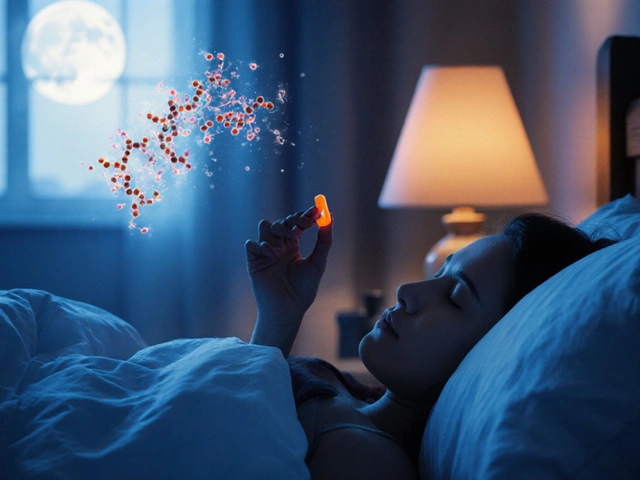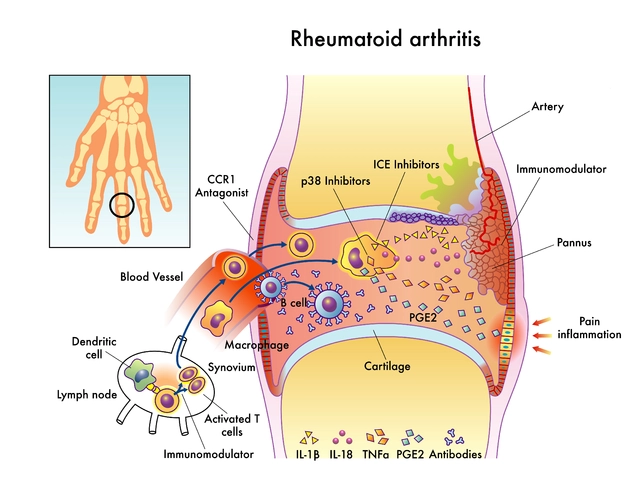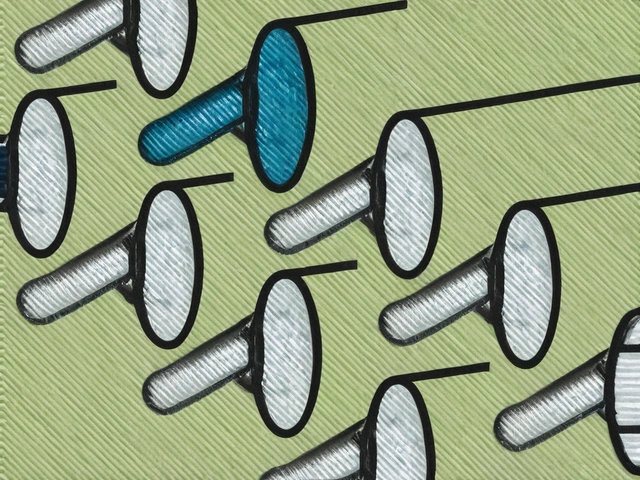Travel sickness can turn an exciting trip into a nightmare, especially for older adults. Below are quick, practical actions caregivers can take to keep seniors comfortable and safe while on the move.
- Identify early signs - sweating, pale skin, nausea.
- Hydrate before and during travel; avoid heavy meals.
- Choose seats that minimize motion (front of bus, over wing on a plane).
- Pack ginger, acupressure bands, and any prescribed medication.
- Have a plan for sudden worsening - know the nearest medical facility.
Understanding Travel Sickness in Older Adults
When most people think of motion sickness they picture a teenager on a roller coaster, but the elderly experience the condition differently. Age‑related changes in the vestibular system - the inner‑ear balance organ - make them more sensitive to motion cues. Slower reaction times and common medications can also amplify nausea, dizziness, and cold sweats.
For caregivers, the challenge is two‑fold: spot the problem early and have a ready‑to‑go strategy that doesn’t rely on trial‑and‑error. Below we break down the science in plain language, then jump straight to what you can do today.
Spotting the Symptoms Before They Escalate
Older travelers may not vocalise discomfort the way a younger passenger would. Watch for subtle cues:
- Pale or ashen complexion.
- Unexplained shakiness or a sudden need to sit down.
- Frequent trips to the restroom without a clear cause.
- Complaints of “feeling off” that don’t fit typical fatigue.
Documenting these signs in a quick "symptom log" (date, time, activity) helps you decide when to intervene and provides useful data for the traveling doctor.
Pre‑Travel Prevention: Setting the Stage for Comfort
Prevention works best when it starts at home, days before the departure.
- Hydration plan: Aim for 1.5‑2L of water per day for seniors, spread across meals. Avoid caffeine and alcohol, which can dehydrate and worsen nausea.
- Meal timing: Serve a light, high‑protein snack (e.g., cheese and whole‑grain crackers) 30‑45minutes before travel. Heavy, greasy foods are a known trigger.
- Medication review: Consult the prescribing physician about any drugs that may heighten motion sensitivity, such as certain blood pressure or antidepressant meds. A motion sickness medication like meclizine can be prescribed at a reduced dose for seniors.
- Acupressure preparation: Wear a acupressure band on the P6 point (inner forearm, about three finger‑widths above the wrist). Studies show a 60% reduction in nausea episodes for older adults.
- Seat selection: Book seats over the wing on an aircraft, mid‑bus, or near the front of a train. These locations experience the least vertical motion.
Managing Symptoms While on the Move
If signs appear despite prevention, act quickly:
- Fresh air: Open a vent or step outside on a station platform. Cool, moving air calms the vestibular system.
- Ginger intake: Offer a slice of fresh ginger, ginger tea, or chewable ginger tablets. A 1g dose has been shown to cut nausea intensity by half in seniors.
- Medication administration: If a doctor approved a low‑dose antihistamine, give it with a sip of water. Monitor for drowsiness - many seniors become overly sedated.
- Hydration boost: Offer electrolyte‑rich water (e.g., sports drink diluted 1:1 with plain water) to maintain sodium balance.
- Distraction technique: Encourage looking at the horizon or a fixed point. This visual anchoring reduces sensory conflict.
Keep a small "symptom kit" in the carry‑on: ginger, acupressure band, water bottle, a copy of medication instructions, and a contact card for the nearest medical centre.

Medication & Natural Remedies: What’s Safe for Seniors?
Choosing the right remedy involves balancing efficacy with side‑effects.
| Option | Typical Dose for Seniors | Onset | Potential Side‑effects |
|---|---|---|---|
| Meclizine (Antihistamine) | 12.5mg once, 30min before travel | 30‑45min | Drowsiness, dry mouth |
| Dimenhydrinate (Dramamine) | 25mg once, 30min before travel | 15‑30min | Confusion, constipation |
| Ginger capsules | 1g (≈2capsules) every 2h | 15‑20min | Heartburn (rare) |
| Acupressure band (P6) | >Wear continuously during travel | Immediate | Skin irritation (if too tight) |
Always confirm dosages with the senior’s primary care doctor, especially if they’re taking blood thinners or blood‑pressure meds. Combining a low‑dose antihistamine with ginger often achieves relief without excessive sedation.
Essential Packing Checklist for Caregivers
- Copy of medical history and current medication list.
- Travel‑size water bottle (preferably insulated).
- Pre‑packed ginger snacks (candied ginger, ginger chews).
- Acupressure band sized for the senior’s wrist.
- Approved antihistamine tablets in original packaging.
- Small cooler bag for keeping electrolyte drinks cool.
- Emergency contact card with doctor’s phone, local hospital, and travel insurance details.
- Comfort items: neck pillow, eye mask, and soft blanket to reduce stress.
Having everything in a single zip‑lock bag makes it easy to locate during a sudden bout of nausea.
When to Seek Professional Help
Most nausea will settle with the steps above, but certain red flags demand immediate medical attention:
- Persistent vomiting for more than 12hours.
- Signs of dehydration: dry mouth, dizziness when standing, dark urine.
- Confusion or sudden loss of consciousness.
- Chest pain or shortness of breath - could indicate a cardiac event unrelated to motion.
Give the caregiver’s phone number to the senior, and keep the nearest medical centre’s address on hand. If you’re on a plane, alert the flight crew; they can arrange a diversion if needed.
Quick Reference Table: Prevention vs. Treatment
| Phase | Action | Why It Works | Key Considerations |
|---|---|---|---|
| Pre‑Travel | Hydration + Light snack | Reduces stomach acidity and keeps blood volume stable | Avoid sugary drinks that may spike blood sugar |
| Pre‑Travel | Seat selection (front/wing) | Minimizes vertical motion exposure | May cost extra; book early |
| On‑Board | Acupressure band | Stimulates P6 point, reducing nausea signals | Ensure correct placement |
| On‑Board | Ginger or antihistamine | Targets stomach lining & vestibular receptors | Watch for drowsiness with meds |
| Emergency | Seek medical help if red flags present | Prevents dehydration, complications | Have insurance info handy |

Frequently Asked Questions
Can seniors take over‑the‑counter motion sickness pills?
Yes, but only after a doctor confirms the dosage. Older adults are more prone to drowsiness, so a low‑dose antihistamine (e.g., 12.5mg meclizine) taken an hour before travel is usually safe.
Is ginger really effective for motion sickness?
Clinical trials with seniors show that a 1gram ginger dose can cut nausea severity by about 50%. Fresh ginger, capsules, or tea all work, provided the senior can tolerate the taste.
How long should a caregiver monitor an elderly traveler after a vomiting episode?
Monitor for at least 24hours. Watch for dehydration signs and ensure they can keep down clear fluids. If vomiting persists beyond 12hours or they feel faint, contact a medical professional.
What seat should I avoid for an elderly passenger?
Avoid seats at the very back of a bus or airplane, where turbulence feels strongest. Also stay clear of window seats on ships where rolling is amplified.
Should I bring a portable oxygen tank?
Only if the senior’s doctor has prescribed supplemental oxygen for a lung condition. Otherwise, fresh air and pacing are sufficient for motion‑related symptoms.





rishabh ostwal
September 28, 2025 AT 16:00One must recognise that the duty of a caregiver transcends mere logistics; it is an ethical covenant. The elderly are not merely passengers but venerable companions whose comfort warrants meticulous planning. Hydration, seat selection, and pre‑travel medication review are not optional but obligations. By embedding these safeguards, we affirm the moral imperative to shield them from needless distress.
Kristen Woods
September 29, 2025 AT 08:32It is absolutely crucial to pack ginger, acupressure bands, and a stash of water-any lapse is simply impoortant to avoid a disaster. The seat choice, front of the bus or over the wing on a plane, can make all the differece. Remember, heavy meals are a no‑no; keep it light and you’ll thank yourself later.
Carlos A Colón
September 30, 2025 AT 01:04Ah, the classic "feeling off"-nothing like a subtle cue to remind us that seniors have mastered the art of silent suffering. Of course, a glass of water and a ginger chew can work wonders, unless you’ve already tried that and it didn’t work, then what? Anyway, keep an eye out; they’ll let you know when it’s really bad.
Aurora Morealis
September 30, 2025 AT 17:36Hydrate before travel keep snacks light use acupressure band seat near front minimal motion. Fresh ginger helps nausea a lot. Monitor for pale skin and shakiness.
Rex Peterson
October 1, 2025 AT 10:08From a philosophical standpoint, motion sickness in the elderly can be understood as a discord between the vestibular expectations and actual kinetic stimuli. This dissonance invites a reflexive response, which we can mitigate by aligning environmental variables-seat position, visual focus, and biochemical modulation-so that the body’s predictive models are satisfied. In doing so, we honor both the physiological and existential dimensions of travel.
Candace Jones
October 2, 2025 AT 02:40When you’re on the go with an older loved one, keep the ginger snacks handy and make sure the water bottle isn’t empty. A quick check of their comfort level every hour can prevent a full‑blown episode.
Robert Ortega
October 2, 2025 AT 19:12Absolutely, regular check‑ins are a simple yet effective strategy. It shows care without being intrusive and helps catch symptoms early.
Elizabeth Nisbet
October 3, 2025 AT 11:44Keep it chill-grab a ginger chew, pop that acupressure band, and stay hydrated. If they’re uncomfortable, a quick shift to a seat with less motion can work wonders.
Sydney Tammarine
October 4, 2025 AT 04:16It is simply indefensible that any caregiver would neglect these simple measures-hydration, ginger, proper seating. One must rise above complacency and embrace the higher standard of care. The moral high ground is not optional; it is a duty. 😊
josue rosa
October 4, 2025 AT 20:48When addressing travel‑induced nausea in geriatric populations, it is imperative to adopt a multimodal prophylactic regimen that integrates both pharmacologic and non‑pharmacologic interventions. First, a thorough medication reconciliation should be performed to identify agents that may potentiate vestibular sensitivity, such as certain antihypertensives and selective serotonin reuptake inhibitors. Second, a low‑dose antihistamine, for example 12.5 mg of meclizine administered 30 minutes prior to departure, can attenuate the central vestibular response without imposing excessive sedation if monitored closely. Third, the incorporation of ginger-either as fresh slices, capsules delivering 1 g of gingerol, or as a brewed tea-has demonstrated a statistically significant reduction in nausea severity across multiple clinical trials involving seniors. Fourth, the strategic selection of seating-preferably over the aircraft wing or at the front of a bus-minimizes exposure to vertical accelerations, thereby reducing the sensory mismatch that precipitates nausea. Fifth, the utilization of P6 acupressure bands offers an immediate, non‑invasive method to modulate the vagal tone, which can further dampen the nauseogenic cascade. It is also advisable to maintain a hydration protocol that targets 1.5–2 L of fluid intake per day, distributed evenly across meals and interspersed with electrolyte‑enhanced beverages to preserve plasma osmolality. Sixth, visual fixation techniques, such as focusing on the horizon or a stationary point within the cabin, can provide a stable external reference frame to the brain, mitigating the internal‑external sensory conflict. Seventh, a symptom log should be kept, noting the time, activity, and any precipitating factors, to enable rapid escalation to medical care if red‑flag signs emerge. Finally, caregivers must be prepared to recognize critical warning signs-including persistent vomiting beyond 12 hours, marked dehydration, or sudden onset of confusion-and act swiftly to seek professional medical assistance. This comprehensive approach not only alleviates immediate discomfort but also upholds the dignity and autonomy of the elderly traveler.
Roger Bernat Escolà
October 5, 2025 AT 13:20Ginger works, the band works, just give a sip of water and watch.
Jason Lancer
October 6, 2025 AT 05:52Meh, decent tips.
Brooks Gregoria
October 6, 2025 AT 22:24Everyone loves a checklist, but have you considered that the very act of over‑preparing can heighten anxiety? Freedom from exhaustive planning sometimes yields a calmer mind, which in turn reduces motion‑induced discomfort. So maybe less is more.
Sumit(Sirin) Vadaviya
October 7, 2025 AT 14:56Great info, thanks! 👍 Keep it up.
Conor McCandless
October 8, 2025 AT 07:28Listen, the drama of travel sickness is a theater of the vestibular system and the mind. When the inner ear sends false signals, the brain stages a rebellion. By placing the traveler at the aircraft’s wing, you reduce the amplitude of those signals, quieting the inner ear’s chaotic chorus. A ginger capsule acts as a pacifist mediator, soothing the gastric nerves. The P6 band is a silent conductor, guiding the nervous system toward equilibrium. Hydration is the backstage crew that keeps the performance flowing. Over‑medication, however, can turn the drama into a tragedy, causing sedation and falls. Thus, balance is the protagonist. The caregiver, in this narrative, must be both director and audience, ensuring the plot resolves peacefully. Remember, the final act is not the journey but the safe arrival.
kat gee
October 9, 2025 AT 00:00Sure, ‘less is more’-unless you forget the ginger, then it’s a disaster.
Iain Clarke
October 9, 2025 AT 16:32For anyone unsure, a quick tip: keep a small zip‑lock bag with ginger, water, and medication handy. It’s a simple way to stay organized without over‑complicating the trip.
joba alex
October 10, 2025 AT 09:04i think your over‑detailing is a bit overkll, just pack the basics and you’ll be fine.
Rene Lacey
October 11, 2025 AT 01:36Reflecting upon the intricate interplay of physiological and psychological factors in geriatric travel, one observes that the vestibular apparatus functions as a delicate sensor, constantly reconciling external motion with internal expectations. When this reconciliation fails, nausea emerges as a signal of discord, compelling the organism to seek equilibrium. The caregiver, therefore, assumes the role of a harmonizer, employing interventions that address both the sensory mismatch and the emotional response elicited by discomfort. Hydration serves not merely as a fluid replacement but as a stabilizer of plasma osmolarity, thereby supporting cellular homeostasis. Ginger, rich in gingerol, exerts a modulatory effect on gastric motility, reducing the propensity for nausea while also offering antioxidant benefits. Acupressure at the P6 point provides a non‑pharmacologic avenue to influence the vagus nerve, attenuating the central nausea pathway. Pharmacologic agents such as low‑dose meclizine act on histaminergic receptors, dampening vestibular excitability, yet they must be judiciously dosed to avoid excessive sedation, which can precipitate falls or confusion in the elderly. Seat selection, particularly positioning near the aircraft’s wing or the front of a bus, minimizes exposure to vertical accelerations, thereby reducing the sensory input that fuels the vestibular–visual conflict. Visual fixation techniques, like focusing on a distant point, reinforce spatial orientation, further mitigating the mismatch. By integrating these strategies into a coherent care plan, the caregiver not only alleviates immediate symptoms but also upholds the dignity and autonomy of the traveling elder, fostering a sense of agency amidst the uncertainties of motion.